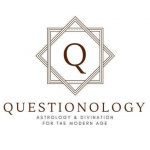 By Nikki Harper
By Nikki Harper
Staff Writer for Wake Up World
Most people are well aware that tobacco smoking is harmful to your health. Smokers are well aware of this too, and yet many find it intensely difficult to quit smoking. For every person who just decides to quit one day and successfully goes cold turkey, there are many, many more who try and fail, try and fail, try and fail.
Nicotine is exceptionally physically addictive, and smokers also have to beat a psychological addiction too, framed around the actions they associate with their smoking addiction. It’s little wonder that on average smokers make between 8 and 11 attempts to quit before succeeding – and that relapses are extremely common, even after smoking cessation.
Despite education and public health efforts in recent years, smoking remains the number one cause of preventable death in the USA and worldwide. In the USA alone, in 2018, there were 34.2 million cigarette smokers, and 16 million people in the US are living with a smoking related disease [1]. According to the World Health Organization, tobacco addiction kills prematurely kills someone every six seconds, and worldwide, one in two tobacco users will die from a tobacco related disease [2].
These statistics are truly shocking. Help is available in many countries for those trying to stop smoking, but typically takes the form of either nicotine replacement products or CBT (cognitive behavioural therapy) or both – and these interventions have a successful smoking cessation rate of only between 10 and 35% [3].
New research emerging from John Hopkins Medicine, however, offers new hope from what some would find to be a surprising direction – psychedelics.
What Does Psychedelic Therapy for Smoking Addiction Involve?
A 2014 John Hopkins pilot study involved treating long-term smokers with three doses of psilocybin, the active ingredient in magic mushrooms. Six months after treatment, 80% of the participants passed biological tests showing them to have successfully stopped smoking [4].
In the intervening years, more research has taken place, and as of December 2019, a new John Hopkins study was investigating the possibility of giving smokers just one single psilocybin dose, administered nearly halfway through a series of ten CBT therapy sessions. So far, this study has shown that 50% of participants have been successful in stopping smoking, many of them having stopped immediately following the psilocybin therapy [5]. Compared to the 10-35% success rate for traditional smoking cessation treatments and therapies, this is extraordinarily encouraging.
How Does Psilocybin Work to Help Treat Addiction?
Nobody is yet certain of the exact mechanism involved. Dr Matthew Johnson, Associate Director of the Center of Psychedelic and Consciousness Research at John Hopkins Medicine, believes that it may have to do with the activation of new neural pathways:
“Neuroimaging studies have shown … that at the time psilocybin is given, there’s a lot of neural connectivity among areas of the brain that usually don’t talk to one another,” he says. “And this occurs for the duration of time that the psilocybin is in the system. It’s led to a hypothesis that this may open a window of neuroplasticity in which there may be a rewiring going on.” – Dr Matthew Johnson [6]
Participants in psychedelic therapy report significant perspective shifts – the ‘mystical experience’ known to be induced by psychedelics, which can bring about a sense of oneness and personal transcendence. The clarity of mind these psychedelic experiences bring may also be contributing towards addiction treatment, changing the thought patterns which underpin the addiction.
What is the Future for Psychedelic Addiction Treatment?
Dr Johnson points out that there is a long way to go yet. The existing studies have been small, and before any such treatment could get the go-ahead, the so-far promising results will have to be replicated in large phase 3 clinical trials.
Psychedelic therapy for addiction – or anything else – will also not be suitable for everyone. Evidence suggests, for example, that those with a predisposition towards psychosis could be harmed by such therapy [7].
However, the very opening of the Center of Psychedelic and Consciousness Research at John Hopkins Medicine is a breakthrough in itself, and a clear signal that psychedelic research is heading into the mainstream – and not just as a treatment for addiction.
FDA Approves ‘Breakthrough Therapy’ Designations for Psilocybin
Twice so far, the FDA have approved ‘breakthrough therapy designation’ for psilocybin research. This designation is meant to speed up research and eventual production of new therapies where evidence shows that the new therapy is a significant improvement on existing therapies. The two breakthrough therapy designations have been awarded to studies examining the use of psilocybin to treat major depressive disorder and treatment resistant depression [8].
It is to be hoped, then, that such breakthroughs will continue to happen and to be recognized as such. Psychedelics – MDMA and LSD, as well as psilocybin – are currently being studied for depression, anxiety and PTSD as well as addiction therapy, and the potential psychological and therapeutic benefits of these substances is finally starting to break through the stigma and prejudice these drugs have faced.
When it comes to smoking, the WHO recognizes nicotine addiction as “one of the biggest public health threats the world has ever faced” [9] – the breakthrough cannot come soon enough.
Article sources:
- [1] https://www.cdc.gov/tobacco/data_statistics/fact_sheets/adult_data/cig_smoking/index.htm – stats
- [2] https://www.who.int/tobacco/publications/gender/en_tfi_gender_women_addiction_nicotine.pdf
- [3] https://www.npr.org/sections/health-shots/2019/12/22/774385634/a-new-way-to-quit-psychedelic-therapy-offers-promise-for-smoking-cessation
- [4] https://www.ncbi.nlm.nih.gov/pmc/articles/PMC4286320/
- [5] https://www.npr.org/sections/health-shots/2019/12/22/774385634/a-new-way-to-quit-psychedelic-therapy-offers-promise-for-smoking-cessation
- [6] https://wamu.org/story/19/10/15/psilocybin-therapy-at-john-hopkins-finds-success-in-addiction-research/
- [7] https://www.sciencedirect.com/science/article/pii/S0028390818302296
- [8] https://www.livescience.com/psilocybin-depression-breakthrough-therapy.html
- [9] https://www.who.int/news-room/fact-sheets/detail/tobacco
Recommended articles by Nikki Harper:
- Harnessing the Power of Synchronicity
- Beyond 11:11 – The Significance of Repeating Number Patterns
- A Time to be Born and a Time to Die: Can Astrology Predict Death?
- Premature and Caesarean Birth: An Astrological Misinheritance?
- The Benefits of a Daily Divination Practice – and How to Start One
- 7 Ways to Find Awe in Your Everyday Life
- Need Answers? Looking for Insight? 7 Ways Astrology Can Help
- Alone But Not Lonely: 6 Amazing Benefits of Solitude
- Dancing in the Rain: 6 Reasons We Should All Be Pluviophiles
- Finding Time for a Daily Spiritual Practice – How and Why to Devote Your Time
- 7 Simple Steps to Start Communicating With Nature
- Getting Started with Remote Viewing: Step by Step to Strengthen Your Psi Abilities
About the author:
 Nikki Harper is a spiritualist writer, astrologer, and editor for Wake Up World. She writes about divination, astrology, mediumship and spirituality at Questionology: Astrology and Divination For the Modern World where you can also find out more about her work as a freelance astrologer and her mind-body-spirit writing and editing services. Nikki also runs a spiritualist centre in North Lincs, UK, hosting weekly mediumship demonstrations and a wide range of spiritual development courses and workshops.
Nikki Harper is a spiritualist writer, astrologer, and editor for Wake Up World. She writes about divination, astrology, mediumship and spirituality at Questionology: Astrology and Divination For the Modern World where you can also find out more about her work as a freelance astrologer and her mind-body-spirit writing and editing services. Nikki also runs a spiritualist centre in North Lincs, UK, hosting weekly mediumship demonstrations and a wide range of spiritual development courses and workshops.
Say hi at Questionology.co.uk or on Facebook.






